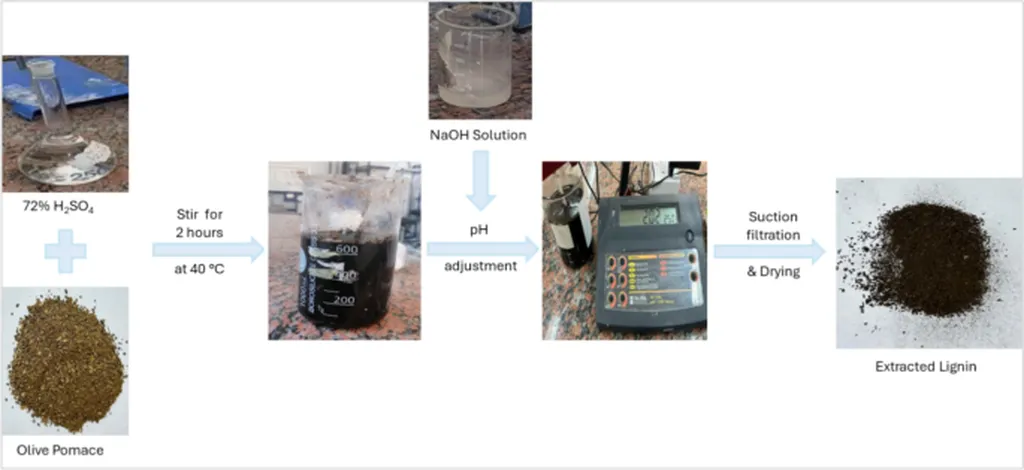In the quest for sustainable and eco-friendly materials, researchers have turned to an unlikely source: olive pomace, a byproduct of olive oil production. A recent study led by Ala Alobeidyeen from the Department of Civil Engineering at Tafila Technical University has uncovered the potential of olive pomace lignin (OPL) as a high-performance modifier for asphalt, offering a promising alternative to traditional, fossil-based materials.
The study, published in the journal Discover Applied Sciences (translated to English as “Applied Sciences Discovery”), explores the use of OPL as a bio-based modifier for asphalt binders and concrete mixtures. Unlike previous research that utilized raw olive pomace or its ash, Alobeidyeen and his team isolated lignin, a high-performance biopolymer, to enhance compatibility, stability, and mechanical performance.
“Our research demonstrates that OPL can significantly improve the mechanical and rheological characteristics of asphalt binders,” Alobeidyeen explained. The team conducted comprehensive laboratory evaluations, including penetration, ductility, softening point, rotational viscosity, Marshall stability, and resilient modulus tests. They found that blending OPL with asphalt binder at a dosage of 10% delivered optimal results, enhancing stiffness, resistance to deformation, and thermal stability without compromising workability.
The implications for the energy sector are substantial. The study highlights a 22.3% cost savings, a 5–7% reduction in energy consumption, and a 6.1–9.8% decrease in CO2 emissions compared to conventional asphalt. These findings underscore OPL’s potential as a sustainable, high-performance alternative for modern infrastructure, promoting circular economy principles by transforming agricultural waste into functional materials for road construction.
“This research opens up new avenues for the pavement industry,” Alobeidyeen noted. “By utilizing agricultural waste, we can reduce environmental pollution and depletion of fossil resources, while also improving the performance and sustainability of our infrastructure.”
The study’s findings could shape future developments in the field, encouraging further exploration of bio-based materials for construction applications. As the world seeks to balance economic growth with environmental sustainability, innovations like OPL-modified asphalt offer a glimpse into a more sustainable future.
In an era where the energy sector is increasingly focused on reducing its carbon footprint, the potential of OPL as a sustainable modifier for asphalt represents a significant step forward. By leveraging agricultural waste, researchers are not only addressing environmental challenges but also paving the way for more efficient and cost-effective construction practices. As the industry continues to evolve, the integration of bio-based materials like OPL could become a cornerstone of sustainable infrastructure development.

